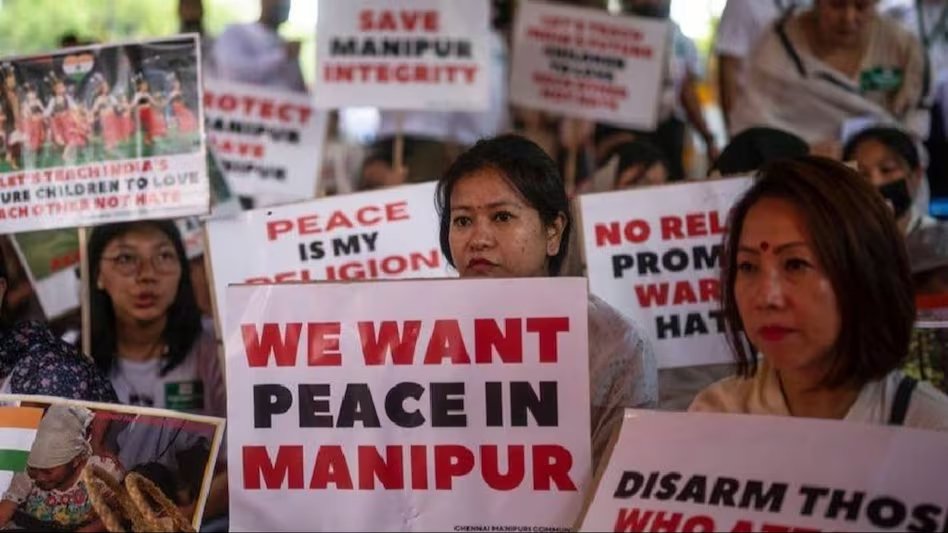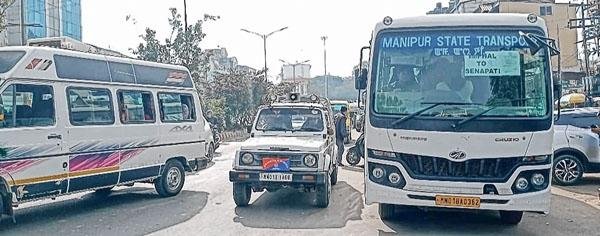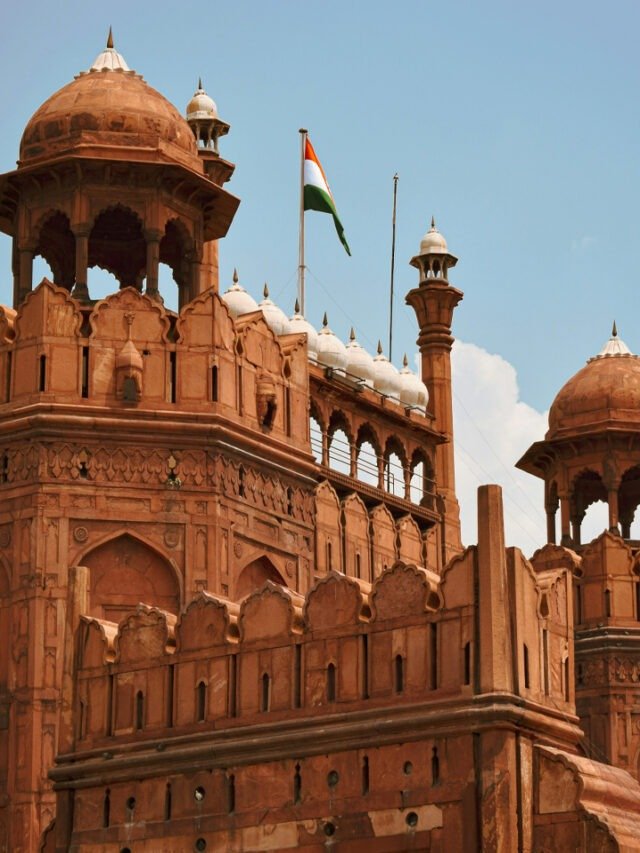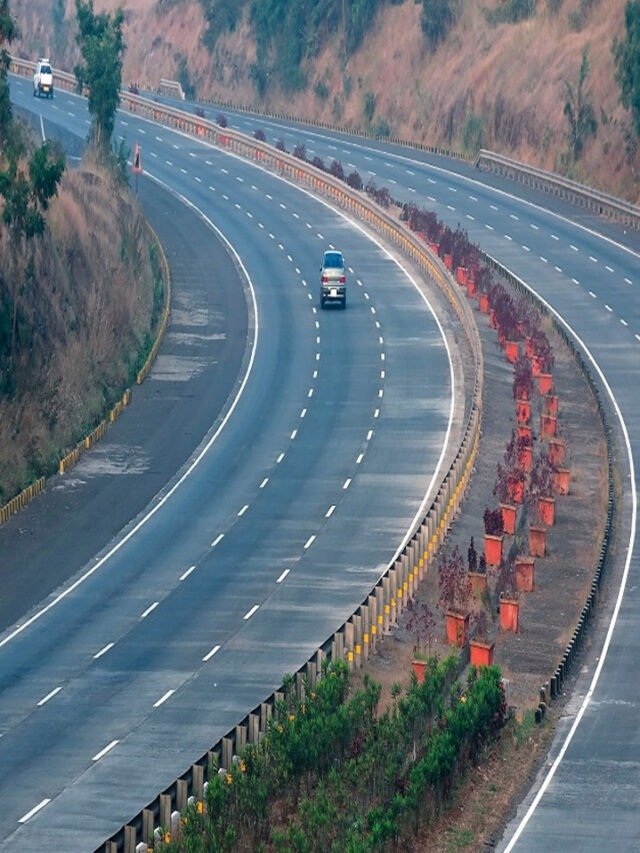HT Digital
IMPHAL, MAY 3: A state-wide shutdown brought Manipur to a complete standstill on Saturday, marking two years since violent ethnic clashes broke out between the Meitei and Kuki-Zo communities. The conflict, which erupted in May 2023, has left over 260 people dead, more than 1,500 injured, and over 70,000 displaced from their homes.
The shutdown was widely observed across the state. Markets were closed, public transport was off the roads, and private offices remained shut in both the Meitei-dominated Imphal Valley and the Kuki-majority hill districts. The protest was jointly enforced by the Coordinating Committee on Manipur Integrity (COCOMI) in the valley and by the Zomi Students’ Federation (ZSF) and Kuki Students Organisation (KSO) in the hills.
In Imphal, people gathered for a candlelight vigil and a ‘People’s Convention’ at Khuman Lampak Stadium to remember the victims. Meanwhile, the Kuki-Zo community marked a solemn ‘Day of Separation’ with memorial services at the Wall of Remembrance and Sehken Burial Site in Churachandpur.
Beyond these symbolic gestures, the pain of the conflict is far from over. Tens of thousands still live as Internally Displaced Persons (IDPs) in overcrowded relief camps and prefabricated shelters, facing immense psychological and economic hardship.
“I used to run a coaching institute in Imphal. It’s all gone now,” shared G Kipgen, a Kuki father of three. “I have no income, no home, and I’m constantly worried about my children’s future.” Similarly, Abung, a Meitei IDP now living in Bishnupur, said, “I had a grocery business. Living in a prefab home isn’t the same—it can’t replace the freedom of having our own home.”
Despite the removal of former Chief Minister N. Biren Singh and the imposition of President’s Rule in February, the situation remains volatile. Community demands have intensified: Kuki groups continue to push for a separate administration, while Meitei organizations demand the implementation of the National Register of Citizens (NRC) and the deportation of so-called illegal immigrants.
According to a senior central security official, both communities are now under the increasing influence of armed groups, which has led to a rise in extortion and youth recruitment. “This is one of the most troubling aspects—civilians are caught in a power struggle,” he said.
Efforts by the government to introduce skill development and livelihood programs have had little impact. Many displaced families remain in despair, relying heavily on charity for survival. “In the early days, support came regularly. But now we’re invisible,” said Abenao Devi, another IDP living in Imphal. “We rely on charity for basics. It’s degrading.”












